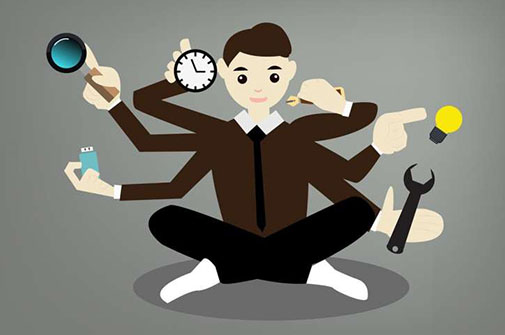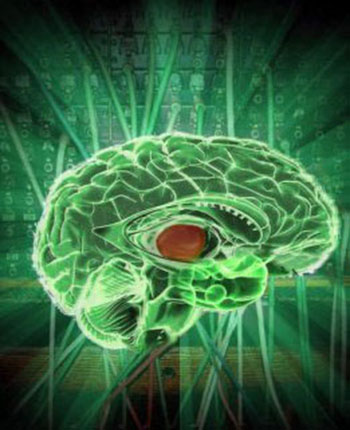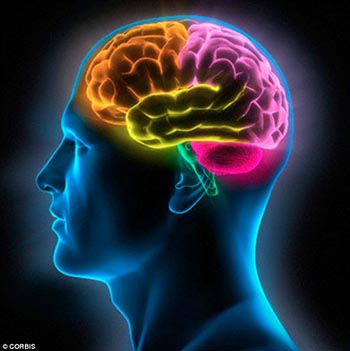



Human multitasking is the best performance by an individual of appearing to handle more than one task at the same time. The term is derived from computer multitasking. An example of multitasking is taking phone calls while typing an email. Some believe that multitasking can result in time wasted due to human context switching and apparently causing more errors due to insufficient attention. Among the worse things people can do when multitasking is texting when driving or walking.
As good as people say they are at multitasking, I believe performance drops off, no matter how much mental energy is expended for two or more additional tasks done simultaneously. The brain gets tired. Having a photographic memory helps.
Because the brain cannot fully focus when multitasking, people take longer to complete tasks and are predisposed to error. When people attempt to complete many tasks at one time, Ňor alternate rapidly between them, errors go way up and it takes far longer - often double the time or more - to get the jobs done than if they were done sequentially. This is largely because the brain is compelled to restart and refocus. A study by David Kieras found that in the interim between each exchange, the brain makes no progress whatsoever. Therefore, multitasking people not only perform each task less suitably, but lose time in the process. Though the brain is complex and can perform a myriad of tasks, but it cannot multitask well.
Everything is about consciousness and focus, especially as reality is a virtual experience. We are programmed to focus attention on one thing at a time, or much is missed by the brain when two activities are involved. These days, as consciousness shifts in frequency, many people report loss of short-term memory a good deal of the time. This goes to focus and is happening globally. Further ... when one relies on multitasking to get their work done, it can become very stressful.
Multitasking is focusing your conscious awareness in more than one place at a time. In the psychic world it is a form of remote viewing where your conscious awareness is in two levels of reality. Your soul is only partially focused in physical consciousness. Though you wake up from dream time, part of your consciousness returning to the physical body, the adventures you were having in dream time continue. So in truth the soul is always multitasking.
Here's Why Multitasking Gets Trickier And Even Dangerous as We Age Science Alert - January 2, 2024

We attempt to split our attention countless times a day when juggling both mundane and important tasks. But doing two things at the same time isn't always as productive or safe as focusing on one thing at a time. The dilemma with multi-tasking is that when tasks become complex or energy-demanding, like driving a car while talking on the phone, our performance often drops on one or both. Here's why - and how our ability to multi-task changes as we age.
The illusion of multitasking boosts performance Medical Express - November 13, 2018

Our ability to do things well suffers when we try to complete several tasks at once, but a series of experiments suggests that merely believing that we're multitasking may boost our performance by making us more engaged in the tasks at hand. Multitasking is often a matter of perception or can even be thought of as an illusion. Evidence suggests that humans are actually incapable of paying attention to multiple tasks at the same time - we may think that we're multitasking, but we're actually switching back and forth between tasks.
Study reveals how brain multitasks Science Daily - October 21, 2015

Researchers report that they have added to evidence that a shell-shaped region in the center of the mammalian brain, known as the thalamic reticular nucleus or TRN, is likely responsible for the ability to routinely and seamlessly multitask. The process, they suggest, is done by individual TRN neurons that act like a "switchboard," continuously filtering sensory information and shifting more or less attention onto one sense -- like sight -- while relatively blocking out distracting information from other senses, including sound.
Researchers help identify the neural basis of multitasking Science Daily - September 2, 2015

By studying networks of activity in the brain's frontal cortex, researchers have shown that the degree to which these networks reconfigure themselves while switching from task to task predicts people's cognitive flexibility. While the predictive strength of this reconfiguration suggests that it is only one of several processes involved in successful task switching, it plays a core role.
Women who have a sex change 'lose the ability to multitask after being exposed to male sex hormones', claim scientists Daily Mail - August 31, 2015

researchers examined 18 female-to-male transsexuals, performing MRI scans Found grey matter shrank in two regions of the brain linked to language processing and that the connection between the regions became stronger.
How Multitasking Can Improve Judgments Science Daily - May 13, 2013
A team of researchers from the University of Basel finds that multitasking does not always result in poor judgments. In fact, multitasking can improve performance - provided that the task at hand can be best resolved by using a simpler, less demanding strategy. Research has revealed that multitasking impedes performance across a variety of tasks. Emergency room nurses that are interrupted multiple times while treating a patient can be more likely to make medication errors. Driving while speaking on a mobile phone significantly increases the probability of an automobile accident. At the same time, however, experienced golfers putt better when distracted than experienced golfers who are focusing on performance. Distractions resulting from the presence of other people can increase an individual's performance, too. Why?